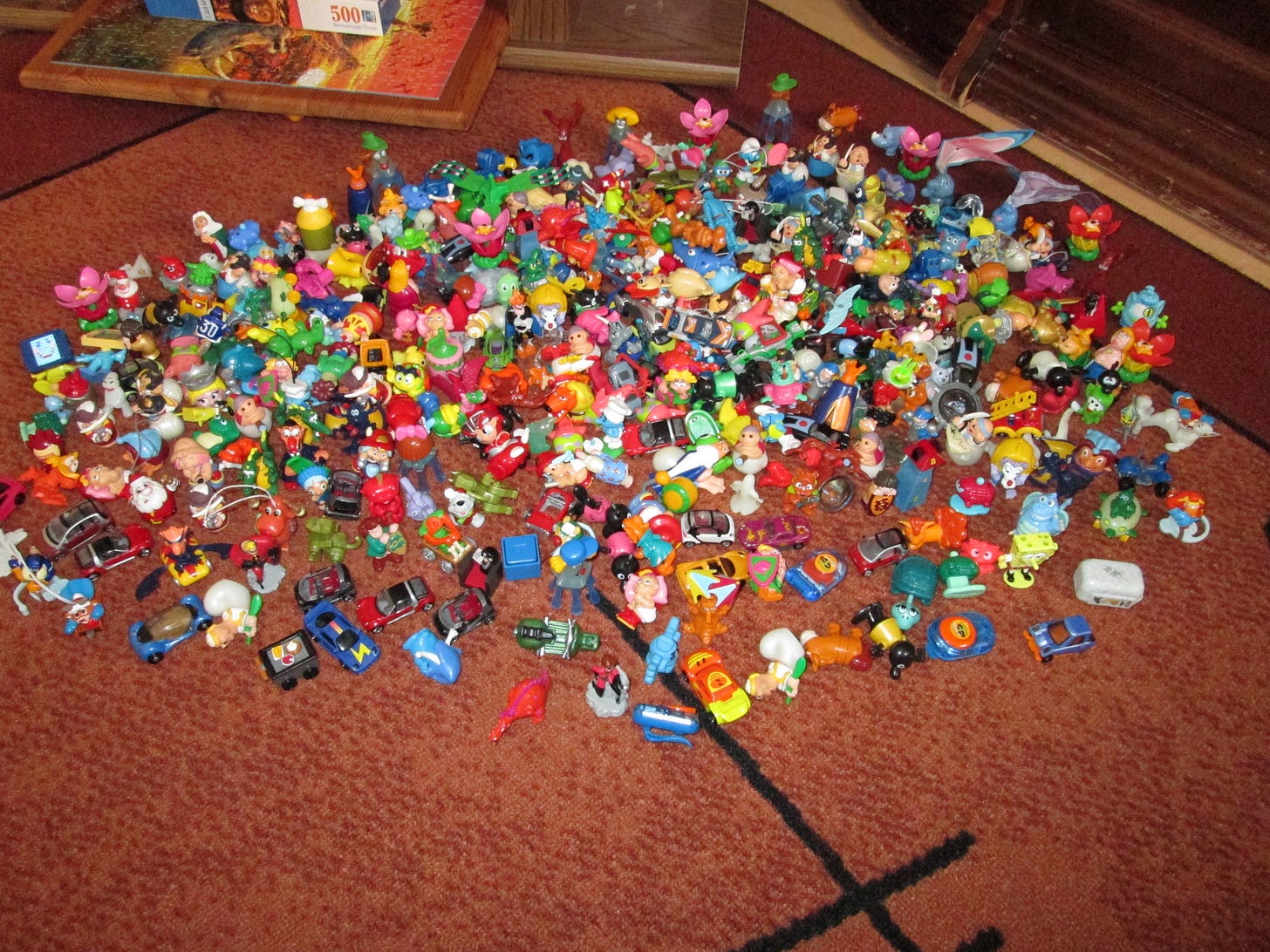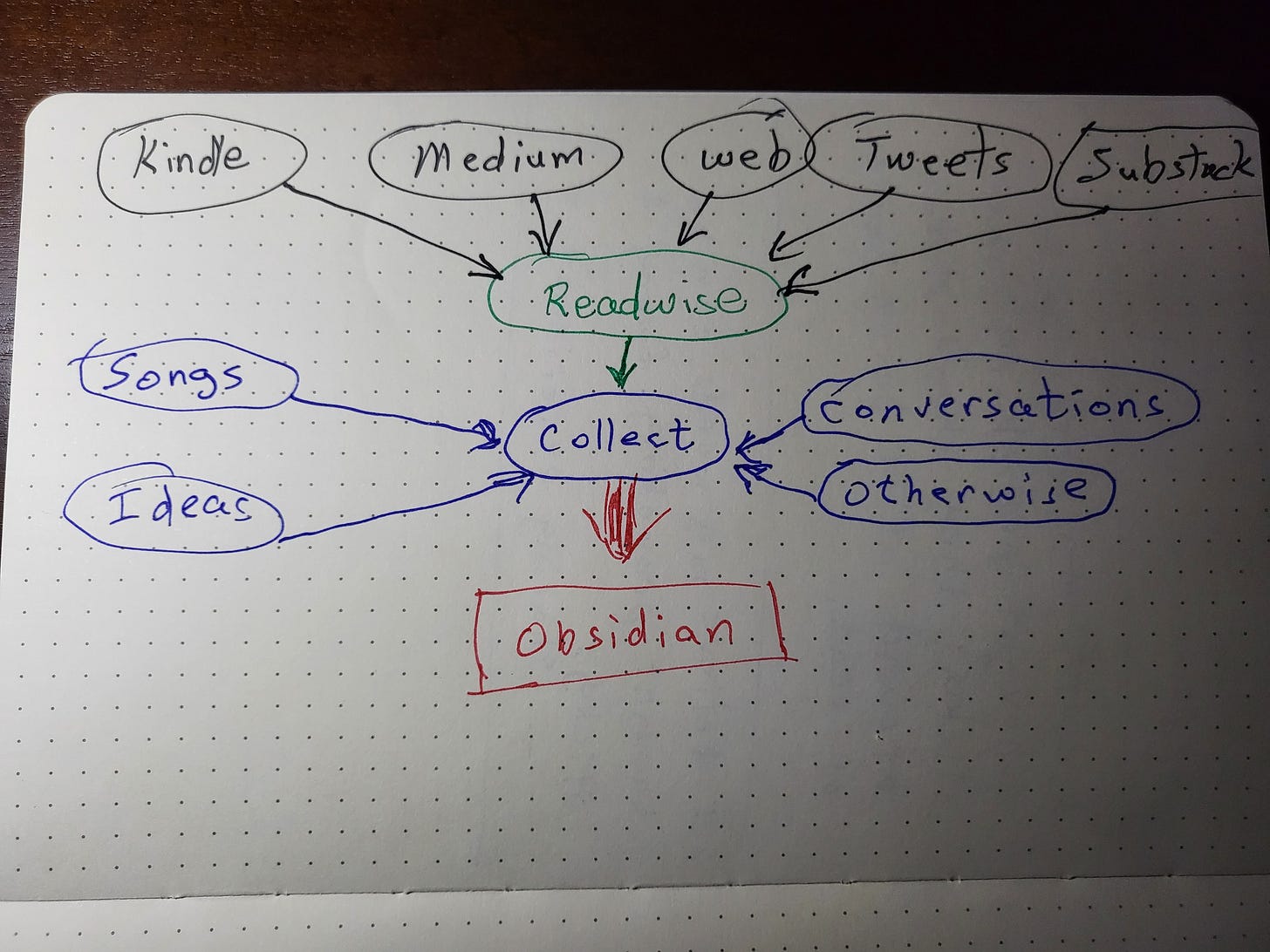One Writers Workflow
C.O.D.E. Capture Organize Distill Express - The way you might use it after renovating to fit your needs.
All images by Author
First things first
In reading Building a Second Brain by Tiago Forte you can learn a ton of stuff in great detail. Yes, I highly recommend getting a copy.
What you read about here is a mixed salad of the book, coupled with many other books and articles, seasoned through trial error to create a personal workflow for myself.
This is part 1 of a series of articles. How many? Only you and I can decide, it all depends on your feedback in the comments. And of course, on my own fickle nature. You will read different things here at Thought Mapping and introducing my workflow will be interspersed with other topics. Maybe I will think to write about a very rare animal I saw, but I will keep coming back to this.
Collect
The writers journey from sparknote or idea to expression through publication can - for a whole bunch of us writing creatures - seem rather complicated. Others just sit down and let the story flow through them. Let's talk a bit about workflow, simplicity and clarity shall we?
Dan Koe penned these words.
"Consumption that isn't balanced with creation traps you in a cycle of trying to solve problems you don't have."
@thedankoe on Twitter
What this tells us is that collecting Sparknotes can become a hobby. Yes, this brings in lots of ideas for storytelling. The balance is important. For example if you spend 1 hour a day creating and 5 hours consuming, gathering, researching than it would be a good thing to look at the imbalance.
What to collect?
In one sentence. Everything that might be worthy of becoming a story: part of a conversation, part of a song, part of anything found on the web, part of a book, the idea that showed up in the shower.
Why collect everything?
Because we forget.
You may think while driving you won't forget that line from Iron Maiden The making of a man is fire, not giving in to his desire, but you will.
(don't take notes or eat Tacos while driving)
Without getting into specific apps too much, use an app on your phone with an add note widget. For each step in the process there should be little to no friction in the workflow.
If you highlight in Kindle, you have an extra source of ideas. Whether you use Readwise or not doesn't matter. At any rate I do, in connection with Obsidian.
One Caveat however.
As Tiago writes; Collect that which resonates with you.
Having a review process is a must! I do collect everything that might be worthwhile, but I also have a general weekly review habit for my life which includes all Sparknotes collected that week. If it is not worth keeping, get rid of it.
What happens to the collected stuff?
The next step is Organize the stuff in Notion, Obsidian or whatever you choose.
Yes, it is simlicated depending on you
How do you find ideas to write about?
If you collect, how do you do it?
I would be thrilled to learn about your methods.
Hit me up in the comments, or in chat.
Thanks for reading.



